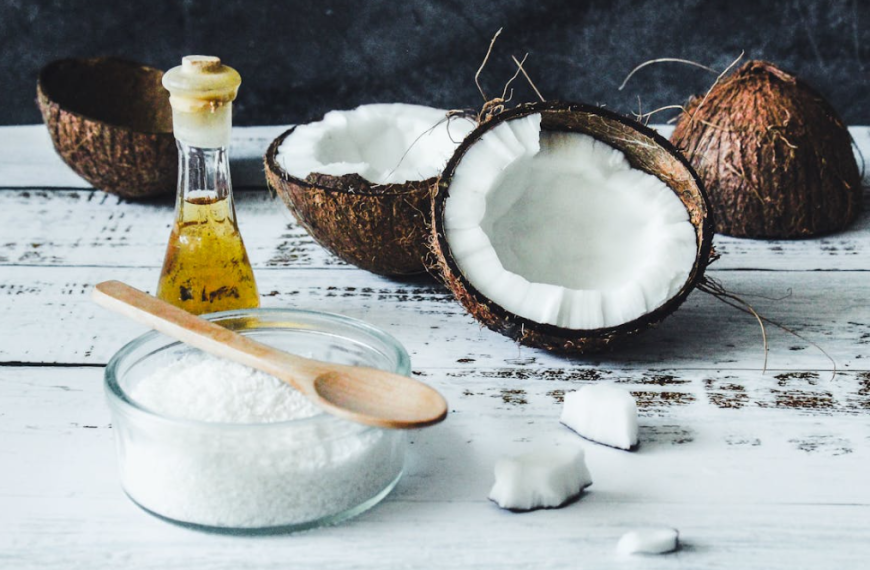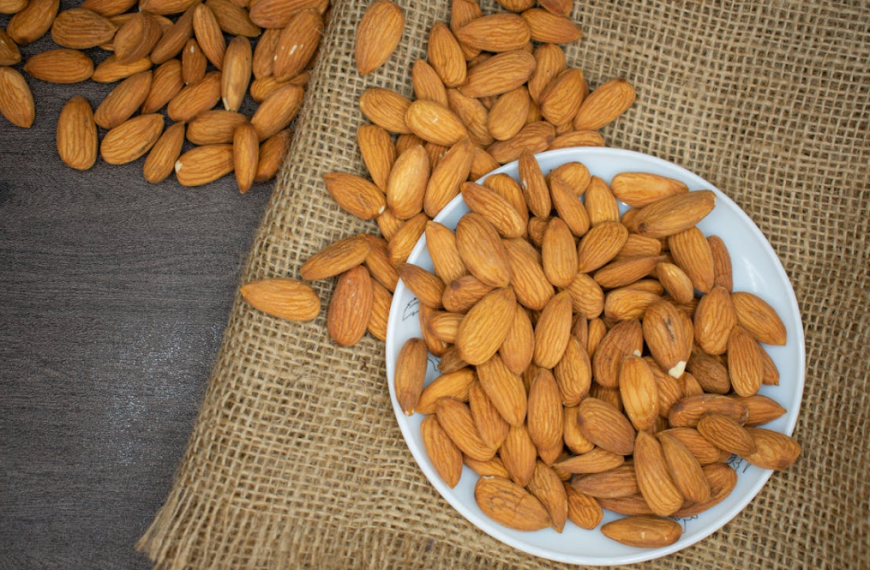Sometimes we don’t appreciate things until we need them, like electricity or cozy socks. And then, when we’re halfway through making curry and realize we’re out of coconut milk, it can be a bit disappointing.
But don’t worry! You can use other things instead of coconut milk for your curry. Let’s look at some good substitutes.
- Shredded coconut (and a blender)
- Coconut cream
- Plant-based milk and coconut oil
- Coconut water and plant-based milk
- Coconut cream
- Milk or plant-based milk
- Evaporated milk
- Heavy cream or half-and-half
What is coconut milk?
Coconut milk is a common ingredient in many parts of the world, especially in places like Southeast Asia, Africa, and South America. While in the US, coconut flavors are usually found in desserts or drinks, like coconut milkshakes.
But in African, Indian, and Thai cooking, coconut milk is often used in soups and curries.
Coconut milk has also become a popular alternative to dairy milk, like almond or soy milk.
When you buy coconut milk, you’ll usually find it in cans on the shelf for cooking. The kind in cartons, meant as a dairy alternative, is usually more watery and has a milder flavor. But you can use either one for cooking if you need to.
One serving of canned coconut milk, which is about 100 grams, gives you:
- 197 calories
- 21 grams of fat
- 3 grams of carbs
And one serving of coconut milk from a carton, also about 100 grams, gives you:
- 31 calories
- 2 grams of fat
- 3 grams of carbs
To find the best substitutes for coconut milk, we talked to Cindy Chou, who is a chef and dietitian. She works with Cancer Nutrition in a Bowl and The Sound of Cooking. Her suggestions include alternatives that still have a coconut flavor, which is important for some recipes. But we’ve also added some options without coconut in case you’re allergic, don’t like the taste, or don’t have any coconut milk available.
Shredded coconut (and a blender)
“If you have shredded coconut at home, you can make coconut milk in less than 10 minutes,” explains Chou. All you need is 1 cup of unsweetened shredded coconut, 2 cups of warm water, and a blender.
“After blending, strain the mixture through a fine-mesh strainer and cheesecloth,” she says.
This recipe makes about 2 cups of coconut milk.
Unsweetened shredded coconut has the following nutrition per 100 grams:
- Calories: 650 kcal
- Fat: 65 grams
- Carbs: 23 grams
But don’t worry, your homemade coconut milk won’t have nearly 700 calories. It will be more like the store-bought coconut milk we discussed earlier because you’ll strain out a lot of the pulp.
Coconut cream
“The next best option,” says Chou, “could be coconut cream.” But she warns: make sure you use unsweetened coconut cream, not cream of coconut, which is very sweet (and might make your dish taste like a piña colada).
“Because it’s thicker than coconut milk, you’ll need to dilute it with water,” Chou explains. “For every cup of liquid needed, mix 2 tablespoons of coconut cream with one cup of water.”
For every 2 tablespoons of coconut cream, you get about:
- Calories: 194 kcal
- Fat: 19.6 grams
- Carbs: 6.1 grams
Plant-based milk and coconut oil
“If you’re making a curry and find out you don’t have canned coconut milk,” Chou suggests, “you can mix plant-based milk with coconut oil to get a creamy texture and a mild coconut flavor.”
Chou recommends using unsweetened oat, rice, or soy milk mixed with a little coconut oil when cooking curry, soup, or stew.
For every 100 grams, unsweetened oat milk provides:
- Calories: 48 kcal
- Fat: 3 grams
- Carbs: 5 grams
Adding a few drops of coconut oil will increase the fat content, but it’s hard to say exactly how much. It depends on how much coconut oil you use.
Coconut water and plant-based milk
“To make something cold, like a smoothie,” says Chou, “you can mix coconut water with a plant-based milk like unsweetened oat milk, soy milk, rice milk, or almond milk.”
You can change the amounts however you like. If you want more coconut flavor, use more coconut water than plant-based milk. And if you want a creamier texture, use more milk than coconut water.
For every 100 grams of coconut water, you get:
- Calories: 18 kcal
- Fat: 0 grams
- Carbs: 4 grams
And for every 100 grams of unsweetened soy milk, you get:
- Calories: 41 kcal
- Fat: 2 grams
- Carbs: 3 grams
Coconut butter
Coconut butter, also known as coconut manna, is like a creamy paste made from pureed coconut meat. Just like shredded coconut, you can blend it with liquid to make coconut milk. And the good news is you don’t need to strain it afterward. But, unfortunately, coconut butter isn’t a common item found in pantries, so if you’re out of coconut milk, you probably won’t have any of this on hand.
By adjusting the amounts of coconut butter and liquid, you can make your homemade coconut milk as coconutty and thick as you want.
For every 100 grams of coconut butter, you get:
- Calories: 710 kcal
- Fat: 65 grams
- Carbs: 26 grams
Milk or plant-based milk
If you want to skip using coconut (or if you don’t have any coconut ingredients like shreds, cream, oil, water, or butter), you can use regular milk instead—whatever kind you like.
Just keep in mind that whatever you’re making won’t taste the same as it would with coconut. For example, curries might not have as much flavor.
But if you’re in a hurry and need to avoid coconut, this is your best choice.
For every 100 grams, 2% milk provides:
- Calories: 50 kcal
- Fat: 2 grams
- Carbs: 5 grams
- Other nutrients: calcium, vitamin D, vitamin A
Evaporated milk
Evaporated milk is a type of milk that comes in a can and can stay fresh on the shelf for a long time. It’s made by heating regular milk and removing about 60% of its water.
This process makes the milk taste a bit sweeter and creamier than regular milk. That’s because some of the water has been taken out.
Because of this, it’s a great substitute for canned coconut milk. It has a similar texture and even a little sweetness, but it doesn’t taste like coconut.
For every 100 grams, evaporated milk provides:
- Calories: 134 kcal
- Fat: 8 grams
- Carbs: 10 grams
Half-and-half or heavy cream
Just like evaporated milk, heavy cream and half-and-half are also good replacements for coconut milk.
Heavy cream has at least 36% milk fat, so it’s really thick and creamy. You can whip it to make whipped cream or turn it into butter. But be careful, you might accidentally make butter if you whip it too much—true story!
Half-and-half is a mix of heavy cream and whole milk, so it’s still creamy but with fewer calories and less fat.
Both heavy cream and half-and-half can make your dish really creamy if you don’t have coconut milk. However, they have more calories and fat.
For every 100 grams, heavy cream provides:
- Calories: 343 kcal
- Fat: 36 grams
- Carbs: 4 grams
And for every 100 grams of half-and-half, you get:
- Calories: 131 kcal
- Fat: 12 grams
- Carbs: 4 grams








